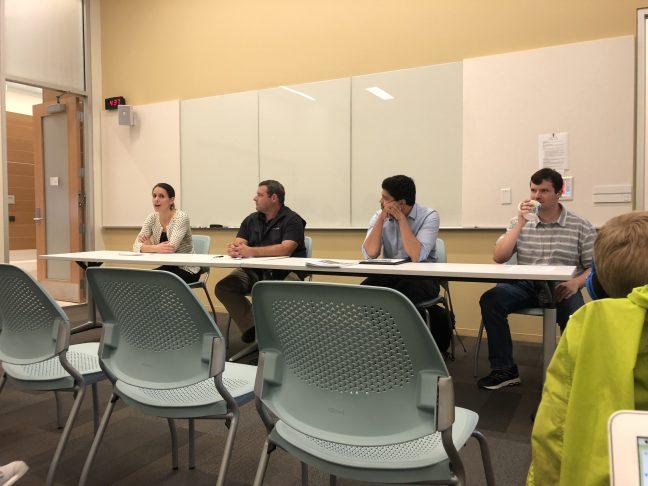Community members gathered at the Wisconsin Energy Institute Tuesday to discuss energy insecurity, and what is being done to combat the issue.
Sociologist Sarah Halpern-Meekin, Project Home’s Field Supervisor Adam Weisse and Director of Transportation Policy at 1,000 Friends of Wisconsin Ashwat Narayanan were the three featured panelists, all experts in their own fields of study. Scott Williams, research and education coordinator at WEI, moderated the forum.
“Our goal with this program today is really to put a spotlight on the issue of energy insecurity and ways that we can remedy it going forward,” Williams said.
As Wisconsin overhauls welfare programs, UW offers new anti-poverty solutions
According to WEI, more than 20 percent of households reported having to cut back on other necessities such as food and medicine in order to pay their energy bill.
Weisse said the average family uses approximately 3.5 percent of their income to pay energy bills, while a low-income family will use anywhere from 7 to 20 percent of their income to pay for heat and electricity.
Weisse’s nonprofit, Project Home, works to implement modifications within homes that encourage energy efficiency. Project Home has worked in more than 20,000 homes in Dane and Green County, Weiss said their mission is to relieve homeowners of energy insecurity.
“It feels good to come in and provide a service that improves their lifestyle,” Weisse said.
Halpern-Meekin explained her research on the finances of low income families, the financial decisions they have to make and how they manage their energy expenses, especially around tax season.
Financial instability and income shocks from unexpected accidents and medical needs often result in difficult decisions for low income families, Halpern-Meekin said. However, the arrival of earned income tax credit for these families returns them nearly half of their yearly earnings, allowing many families to pay off debts and bills, and to put the rest into savings, she said.
“What’s important to me is that the voices of lower income families themselves are at the table,” Halpern-Meekin said. “They share the experiences they’re having and we translate them to the policy makers and stakeholders who are often removed from those experiences.”
WEI and the University of Wisconsin Institute for Research on Poverty will meet again next year to hear proposals on how to aid in solving energy insecurity in Wisconsin.

















